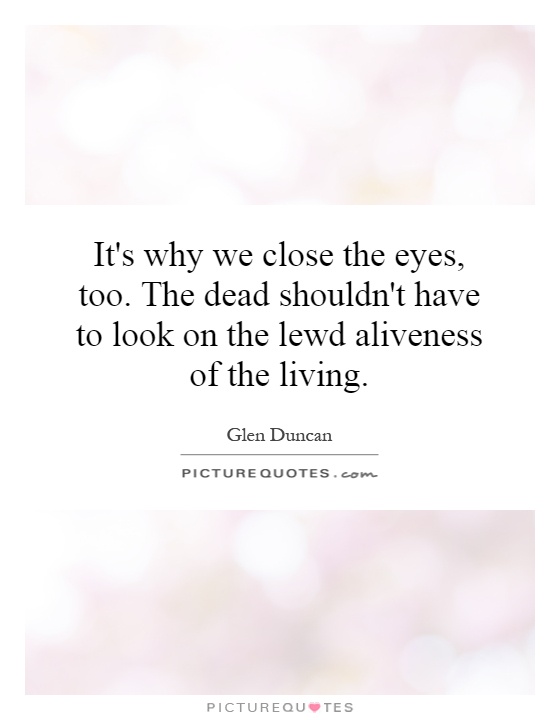It's why we close the eyes, too. The dead shouldn't have to look on the lewd aliveness of the living

It's why we close the eyes, too. The dead shouldn't have to look on the lewd aliveness of the living
In the world of Glen Duncan, death is not just a physical end, but a transition into a different realm of existence. The quote, “It's why we close the eyes, too. The dead shouldn't have to look on the lewd aliveness of the living,” encapsulates the idea that the deceased should be spared from witnessing the raw and often chaotic nature of life.Duncan’s works often explore themes of mortality, morality, and the supernatural, blending elements of horror, fantasy, and philosophical inquiry. In his novel, “I, Lucifer,” the protagonist is a fallen angel who is given a chance to live as a mortal and experience the complexities of human existence. Through this lens, Duncan delves into the darker aspects of human nature, including lust, greed, and violence, which can be unsettling even for those who are still alive.
The act of closing the eyes of the deceased can be seen as a gesture of respect and compassion, shielding them from the harsh realities of the world they have left behind. It is a way of preserving their dignity and allowing them to rest in peace without being confronted by the often messy and unpredictable nature of life.












 Friendship Quotes
Friendship Quotes Love Quotes
Love Quotes Life Quotes
Life Quotes Funny Quotes
Funny Quotes Motivational Quotes
Motivational Quotes Inspirational Quotes
Inspirational Quotes